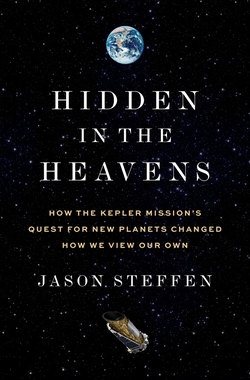Springer’s series on astronautical engineering produces expensive books, as the 1999 publication of Colin McInnes’ Solar Sailing: Technology, Dynamics and Mission Applications made clear. There is no more thorough analysis of solar sailing in print, but the title was designed for professionals and printed in small quantity, with a corresponding pricetag. I was able to snag a used copy for about $100, though Amazon now has a few for $70 or so. High quality, high expense information continues to flow, raising the question of how we can open up its pages to a wider audience.
Now Stephen Kemble’s Interplanetary Mission Analysis and Design is out from Springer at $179. Like the McInnes title, it’s a solid, detailed work. Of particular interest is a thorough discussion of gravity assist and transfer techniques, along with sections on deep space communications and navigation that update earlier references. Mission designs from nuclear to ion propulsion are presented along with specific deep space scenarios. Coupled with the second edition of Gregory Matloff’s Deep Space Probes: To the Outer Solar System and Beyond (Springer, 2005), the duo offer a comprehensive if expensive background on today’s state of the art. Any sound engineering library should have these and the McInnes volume on its shelves.
But surely the term ‘on its shelves’ points to the problem. We are not doing a sufficient job at exploiting digital text to broaden the reach of our information. The independent researcher is always bedeviled by this issue. Centauri Dreams is fortunate to have three outstanding universities within easy driving distance; library access to even the most obscure journals isn’t a problem, though finding the time for the needed library trip sometimes is. Online, some key journals can be found in full-text format, others by abstract only, and this is with full access to proprietary databases, which those without academic connections are unlikely to have. As for books, I can get to the Springer titles listed above (and usually cough up the money to keep such titles on my shelves anyway), but note how restricted the availability of such volumes is for those out of university range.
 I’m now studying the excellent OpenReader concept that is producing XML standards for electronic texts. The ThoutReader software produced by OSoft is a superb platform for onscreen reading and research; OSoft also intends to produce a free e-text reader in early 2006, one that embraces the OpenReader standards. Because of their implications for cost-effective publishing and broadened information access, I will be keeping a close eye on these projects here on Centauri Dreams. We are a long way from having a true digital library, but projects like these show that good people are working on breakthroughs. You should also be aware of David Rothman’s excellent Teleread weblog; Rothman is a key player in OpenReader and a tireless advocate for a national digital library system.
I’m now studying the excellent OpenReader concept that is producing XML standards for electronic texts. The ThoutReader software produced by OSoft is a superb platform for onscreen reading and research; OSoft also intends to produce a free e-text reader in early 2006, one that embraces the OpenReader standards. Because of their implications for cost-effective publishing and broadened information access, I will be keeping a close eye on these projects here on Centauri Dreams. We are a long way from having a true digital library, but projects like these show that good people are working on breakthroughs. You should also be aware of David Rothman’s excellent Teleread weblog; Rothman is a key player in OpenReader and a tireless advocate for a national digital library system.

